States of Matter Teaching Resources
Explore the changing states of matter with worksheets, experiments, activities and more — all created by teachers for your lesson plans!
This collection of science resources provides you everything you need to teach students the properties of solids, liquids and gasses and examine how matter changes its state.
New to teaching this section of the science curriculum or just looking for some handy tips and tricks? Read on for a primer from our teacher team, including answers to some of students' frequently asked questions!
How Many States of Matter Are There?
This is a fairly common question from students, so we'll get started right here — there are three main states of matter:
- Liquid
- Solid
- Gas
Your students may have heard that there's a fourth state of matter, and technically they are right! That's why we often refer to the 'three main states' of matter, rather than simply saying 'three states of matter.'
Plasma is a substance that we get when a gas is electrically charged. It's thick and soupy — so it's neither liquid nor solid — and that's why it is often referred to as the 'fourth state of matter.'
So why do we focus on the other three? Simple — plasma is in abundance in our galaxy, but it's far less prevalent down here on Earth!
What Is a Liquid State of Matter?
Liquid is a state of matter your students are pretty familiar with. After all, their favourite drinks, the water in the swimming pool and the rain falling down from the sky are all liquid states of matter.
But what, exactly, is a liquid?
By definition, a liquid is a state of matter that has a definite volume but no definite shape. The particles in a liquid are close together, but unlike those in a solid, they can move and flow past one another.
Liquids can also take the shape of their container — like milk in a cereal bowl!
What Is a Solid State of Matter?
Solids are all around us, from the chairs we sit on to the walls of the classroom, but how do you explain what a solid state of matter is to your class? Try this definition:
A solid is a state of matter that has a definite shape and volume.
The particles in a solid are tightly packed together and unlike those in other states, they do not move freely.
Solids can be hard — like the top of the desk or a rock. They can also be soft, like a pillow or a ball of playdough.
What Is a Gas State of Matter?
We've got just one main state of matter left — gas. Gas is all around us, but it's not always seen, so students may not realize just how much interaction they have with matter in this state!
Here's how we describe gas to students:
A gas is a state of matter that has no definite shape or volume. The particles in a gas are spread out and they move freely. These particles fill will up any space available.
Gases are often invisible like the air we breathe. Sometimes gas can be seen, however, such as the smoke coming from a campfire.
- Plus Plan
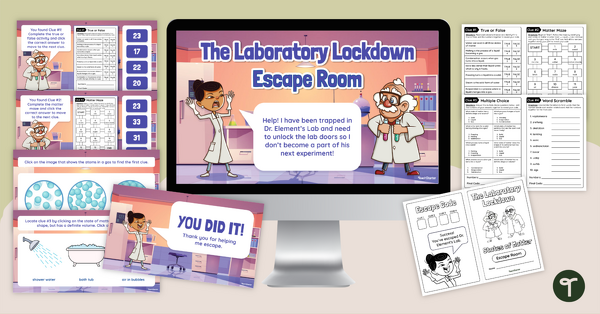
Laboratory Escape Room - States of Matter Game
Use an Escape Room-styled States of Matter Game to engage and excite your students about the forms and changes seen in matter.
- Free Plan
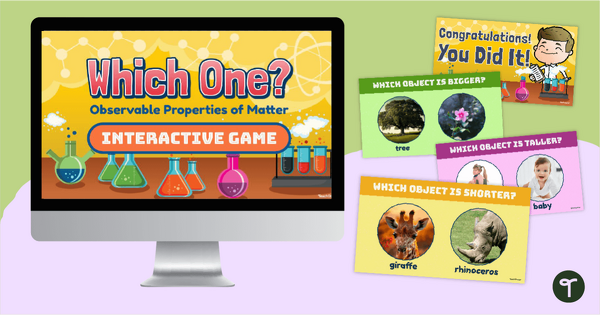
Observing Matter - Foundation Year Science Game
Practise observing the properties of matter with an engaging science game for foundation year students.
- Free Plan
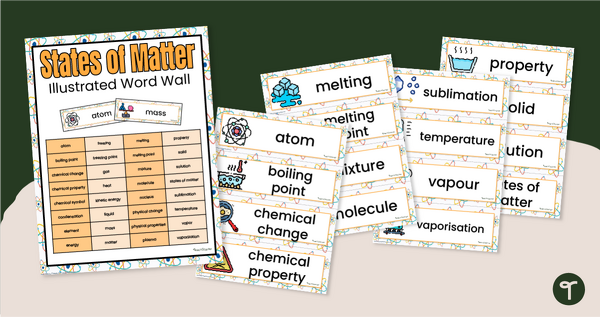
States of Matter Word Wall Vocabulary
Review vocabulary related to matter with a printable illustrated States of Matter Word Wall.
- Plus Plan
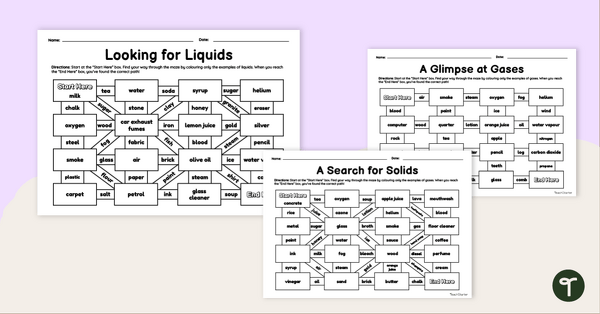
States of Matter Maze Worksheets
Practise identifying examples of solids, liquids, and gases with a set of printable States of Matter Maze Worksheets.
- Plus Plan
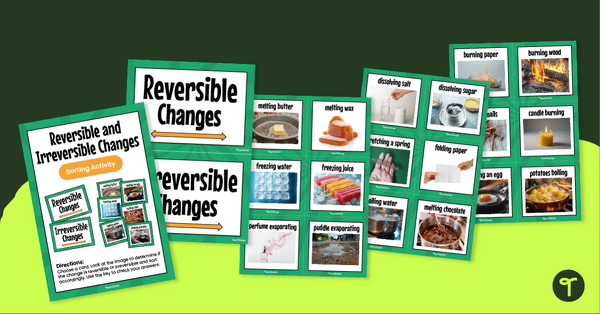
Reversible and Irreversible Changes Sort
Identify examples of reversible and irreversible changes with an engaging Matter Card Game for kids!
- Plus Plan
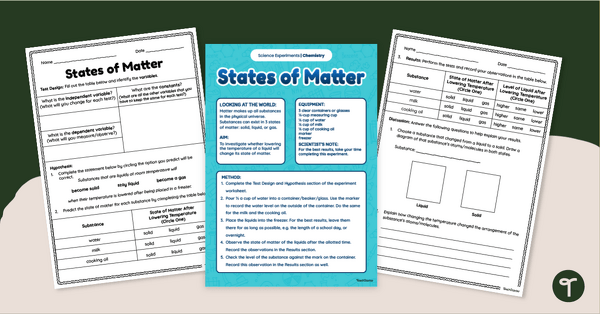
Matter Experiment – Will All Liquids Freeze?
Investigates whether all liquids will change states when heat is removed with an engaging Matter Experiment.
- Plus Plan
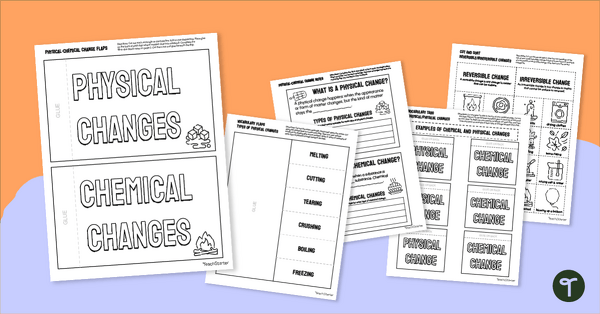
Physical and Chemical Changes in Matter Foldables
Record your students' learning about physical. and chemical changes with a fun set of printable Interactive Notebook Templates.
- Free Plan
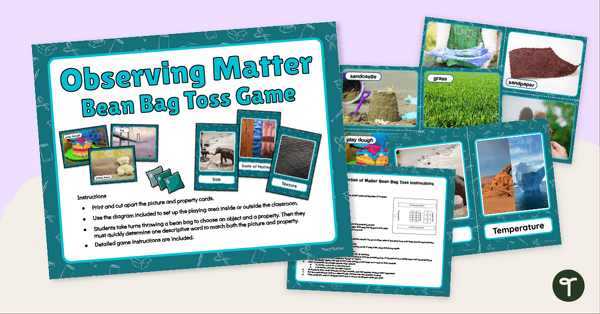
Properties of Matter Game - Bean Bag Toss
Play an exciting Properties of Matter game by downloading a printable Matter Bean Bag Toss Game!
- Plus Plan
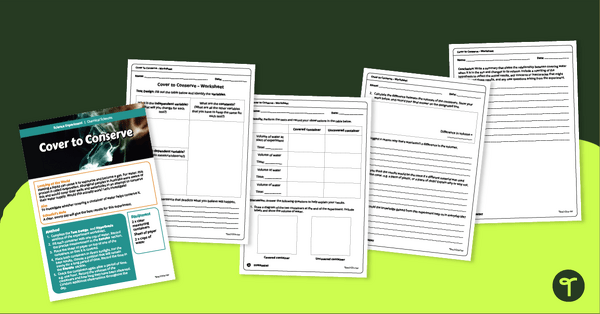
Evaporation Experiment - Cover to Conserve
Investigate if evaporation can be reduced by covering a body of water with a hands on Evaporation Experiment.
- Plus Plan
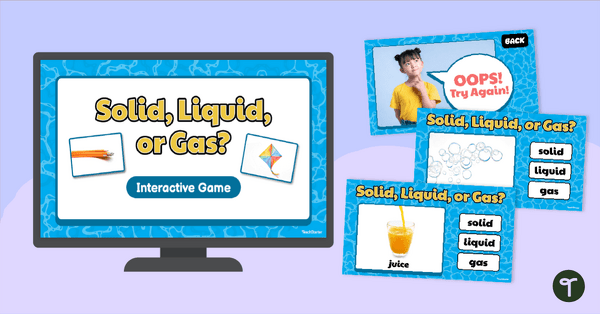
Solid, Liquid, or Gas? Interactive Game
Make learning about the states of matter interactive and fun with this Solids, Liquids, and Gases Game!
- Plus Plan
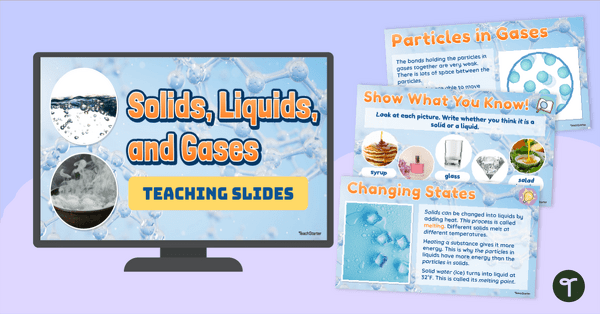
Solids, Liquids and Gases PowerPoint
Teaching your students about solids, liquids and gases with an engaging interactive teaching slide presentation.
- Plus Plan

3 States of Matter - I Spy Worksheets
Recognise examples of solids, liquids, and gases with a pack of printable States of Matter I Spy Worksheets!
- Plus Plan
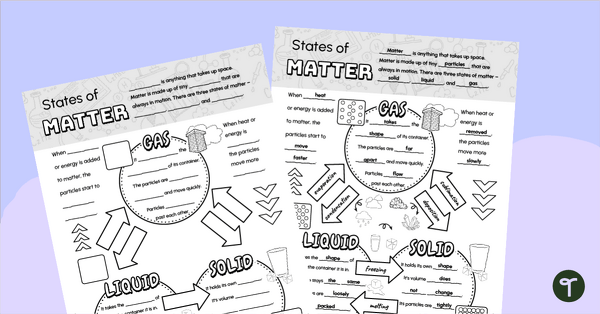
States of Matter Doodle Notes Template
Improve note-taking skills with a printable States of Matter Doodle Notes Template.
- Plus Plan
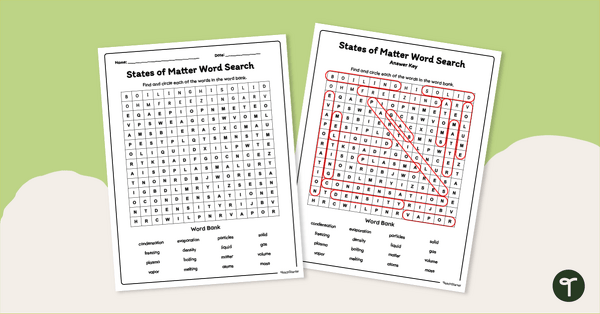
States of Matter Word Find - Upper Years
Use a States of Matter word search to introduce your upper-years students to new academic vocabulary.
- Plus Plan
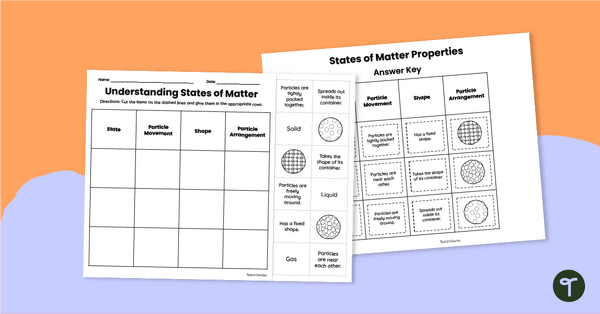
Understanding States of Matter - Cut and Paste Worksheet
Engage your students with an interactive activity where they cut and paste to match the properties of solids, liquids, and gases.
- Plus Plan
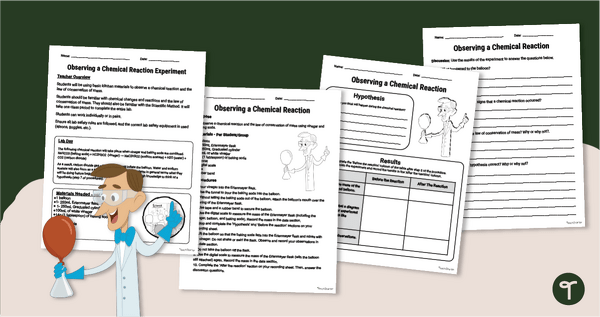
Observing Chemical Reactions Experiment for Kids
Investigates chemical changes and the law of conservation of mass with our Observing Chemical Reactions Experiments.
- Plus Plan
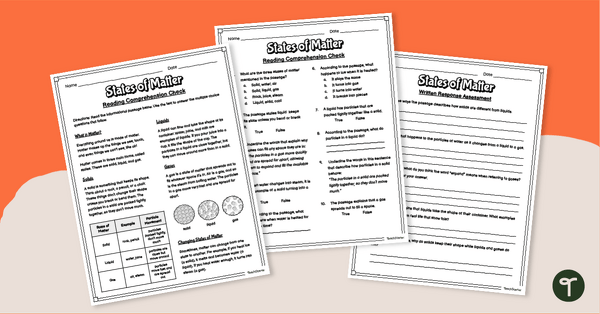
Comprehending Science - States of Matter Worksheet Pack
Use our Comprehending Science - States of Matter Worksheet Pack to review concepts related to solids, liquids, and gases.
- Plus Plan
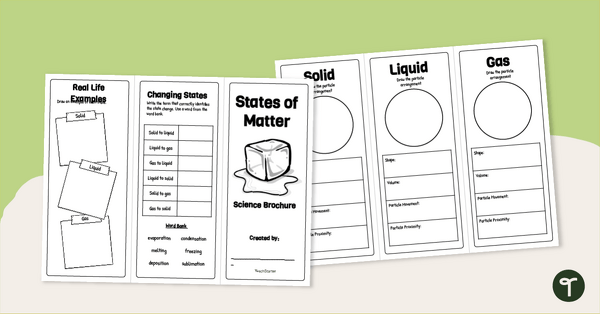
Forms of Matter Brochure Template
Introduce your students to the three states of matter with a printable Forms of Matter Foldable Brochure Template.
- Plus Plan
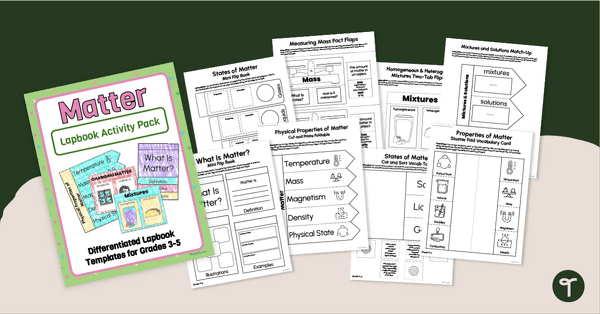
Matter Lapbook - Foldables for Science
Use our printable Matter Lapbook Foldables to teach your students about the states of matter, characteristics of matter, and changes in matter.
- Plus Plan
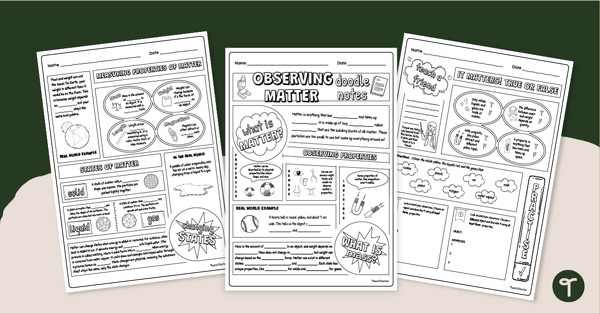
Observing Matter Doodle Notes - Graphic Organiser
Use our Observing Matter Doodle Notes to help your students discover the states, properties, and changes in matter.
- Plus Plan
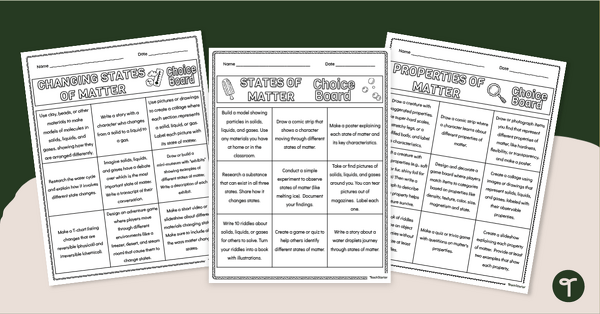
States, Properties, and Changes in Matter Activity Choice Boards
Use printable Matter Project Choice Boards to assess student knowledge of states, properties, and changes in matter.
- Plus Plan
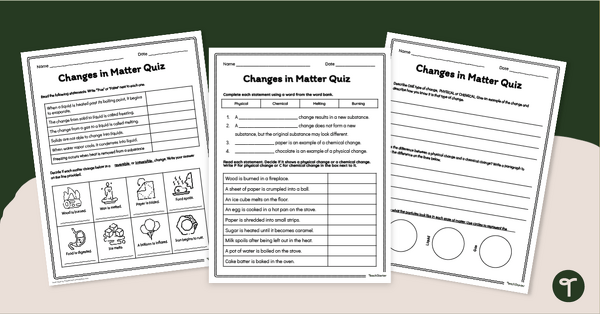
Physical and Chemical Changes Quiz
Assess your students' knowledge of physical and chemical changes in matter with a printable Physical and Chemical Change Quiz.
- Plus Plan
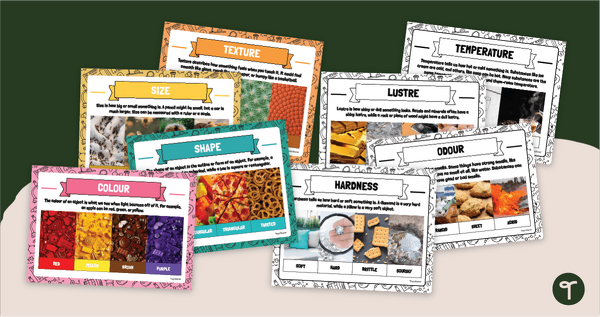
Physical Properties of Matter Poster Pack
Discover the physical properties of matter with a set of printable Properties of Matter Posters for the classroom.
- Plus Plan
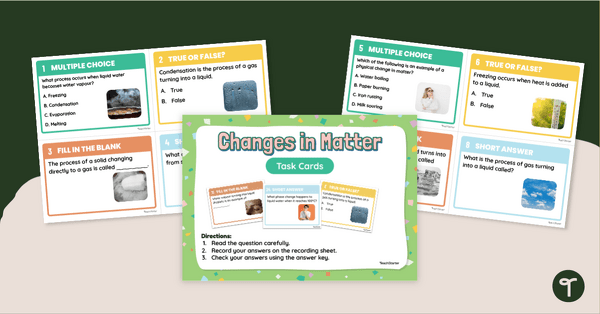
Kids’ Chemistry - Matter and Change Task Cards
Use our Kids’ Chemistry Matter and Change task cards to help your students practice identifying and predicting changes in matter.
- Plus Plan
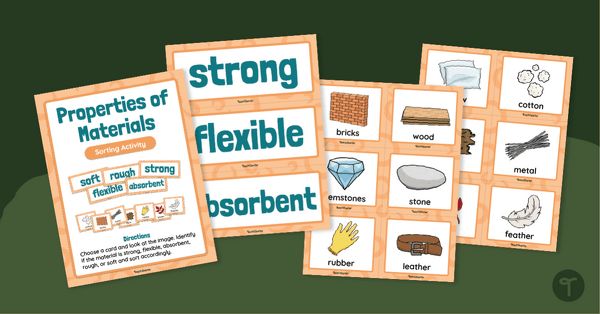
Properties of Materials Sorting Game
Teach your little learners about the basic properties of materials with an engaging sorting activity.
- Plus Plan
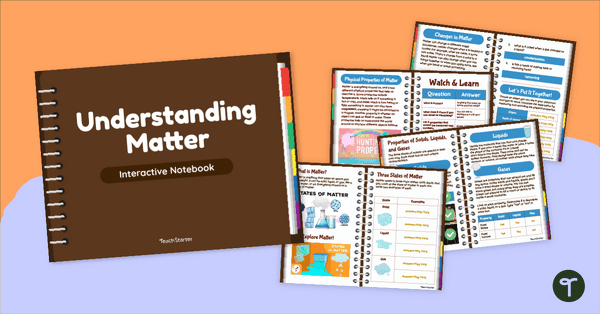
Understanding Matter – Digital Interactive Notebook
Use a digital interactive notebook to teach your students about the states, properties, and changes in matter.
- Plus Plan
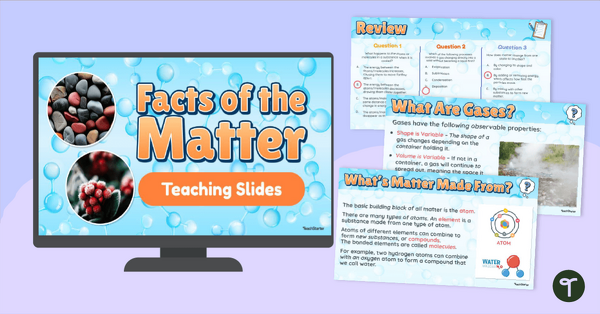
Facts of the Matter PowerPoint Presentation
Intoduce your students to matter and change with an engaging interactive teaching presentation for Year 5.
- Plus Plan
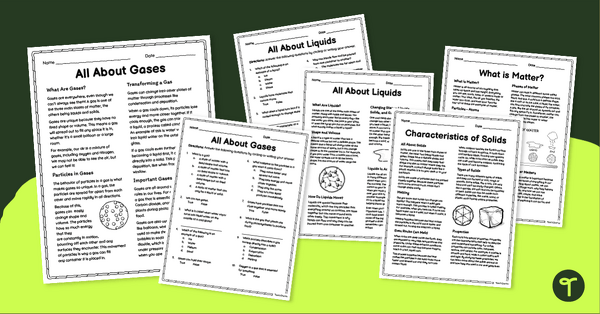
Forms of Matter - Reading Comprehension Worksheets (Year 5)
Read and learn about forms of matter and its properties with a set of printable reading comprehension worksheets for year 5.
- Plus Plan
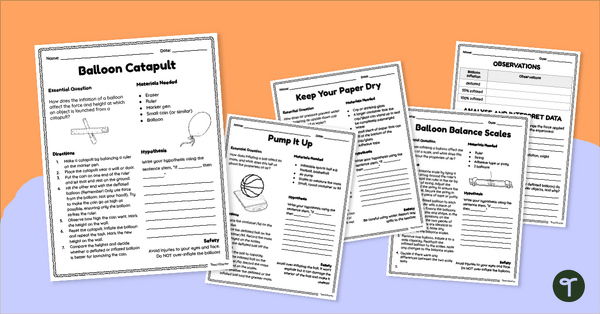
Does Air Have Mass? Matter Science Experiments
Explore the physical properties of gases and discover that air has mass with a set of 4 matter experiments for kids.
- Plus Plan
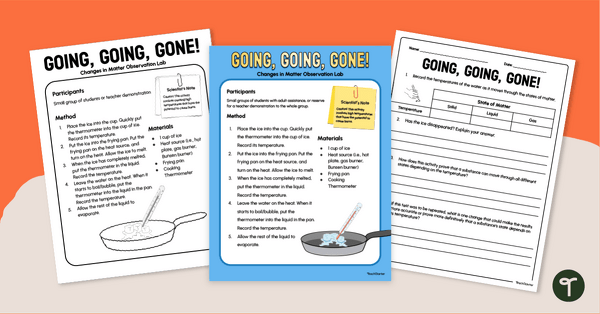
Going, Going, Gone! - Changing States of Matter Experiment
Explore the changing states of matter due to temperature with an engaging science lab activity.
- Plus Plan
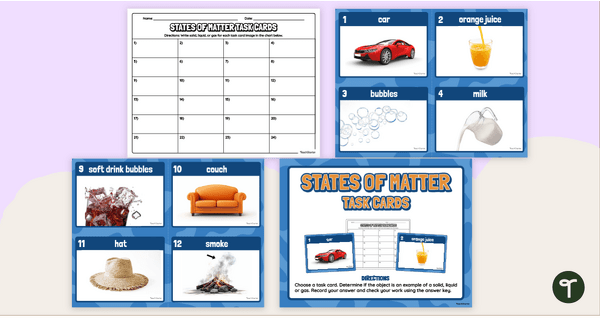
States of Matter Task Cards for Year 3
Help your students identify the three states of matter with a set of engaging Science task cards for Year 3.
- Plus Plan
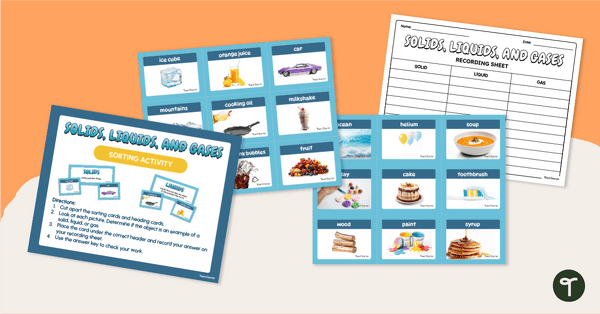
Solids, Liquids and Gases – Sorting Activity
Use a hands-on States of Matter sorting activity to help students identify solids, liquids and gases.